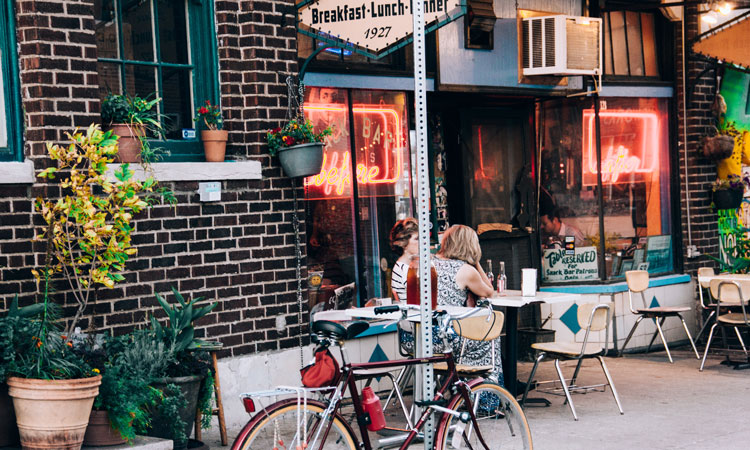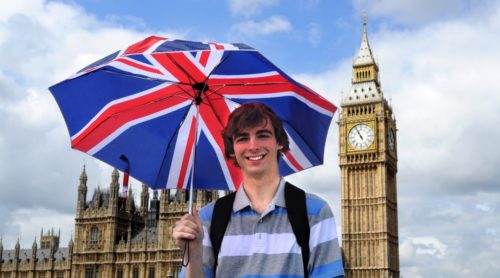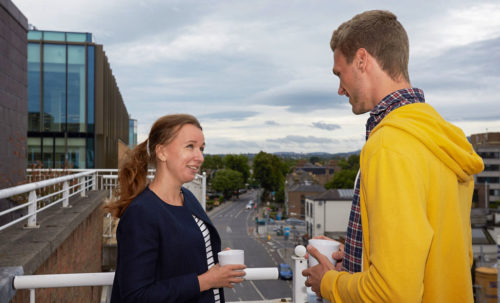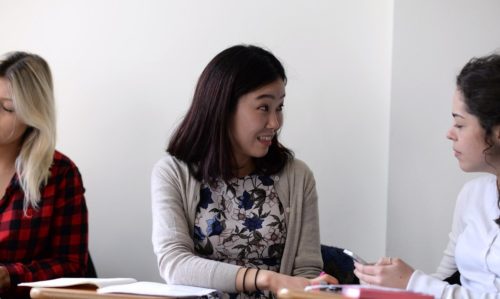When the bright lights of London are calling there’s a world of restaurants, shops and landmarks to be explored. However, along the way you will face communication difficulties, as well as phrases that can seem absolutely baffling. Here, we take a look at the essential English phrases terms you’ll need, whilst also covering the weird and wonderful terms that Cockneys have become world-famous for.
-
Dining out
London is the capital of almost every cuisine in the world, although it’s equally home to plenty of traditional Cockney dishes that range from the stomach-churning (such as Jellied eels), to an array of shellfish (including cockles, winkles and rollmops) and including the decidedly delicious (such as pie and mash, and curry).
The following phrases cover all you need to know to be able to savour everything that London has to serve up upon the restaurant dining table.

Book a table
Do you have any free tables? / A table for … please / two / three / four
I’d like to make a reservation
I’d like to book a table, please / when for? / For what time?

Ordering the meal
Could I see the menu, please?
Could I see the wine list, please?
Can I get you any drinks?
Are you ready to order?
Do you have any specials?
What’s the soup of the day?
What do you recommend?
What’s this dish?
I’m on a diet
I’m allergic to … wheat/ dairy products/ etc
I’m severely allergic to … nuts/ shellfish/ etc
I’m a vegetarian
I don’t eat … meat/ pork
I’ll have the … chicken breast/ roast beef/ pasta
I’ll take this
Problems
This isn’t what I ordered
This food’s cold
This is too salty
This doesn’t taste right
We’ve been waiting a long time
Is our meal on its way?
Will our food be long?

Paying the bill
The bill, please
Could we have the bill, please?
Can I pay by card?
Do you take credit cards?
Is service included?
Can we pay separately?
I’ll get this
Let’s split it
Let’s share the bill
-
Getting around
London is home to one of the most sophisticated transport infrastructures in the world – however the many modes of transportation, including trams, the tube, buses, taxis and bikes, can present plenty of potential for becoming overwhelmed, lost and confused as to how you get from A to B and back again. With this in mind – here are some essential English phrases that you’ll need when getting around London.

For the bus or train station:
Where’s the ticket office?
Where are the ticket machines?
What time’s the next bus to …?
What time’s the next train to …?
Can I buy a ticket on the bus?
Can I buy a ticket on the train?
I’d like a … ticket (Single/ Return/ Child single/ Child return/ Senior citizens’ single/ Senior citizens’ return/ First class single/ First class return)
Are there any reductions for off-peak travel?
When would you like to travel?
When will you be coming back?
I’d like a return to …, coming back on Sunday
Which platform do I need for …? / is this the right platform for …?
Where do I change for …? / you’ll need to change at …

For the Tube
Could you tell me where the nearest Tube station is?
Where’s there a map of the Underground?
Which line do I need for…?
How many stops is it to …?
I’d like a Day Travel card, please / which zones? / zones 1-2
I’d like an Oyster card, please (prepaid card for travelling on public transport in London)
I’d like to put £10 on it
-
London is the shopping centre of the UK: Here are some phrases you’ll need
How much is that …. In the window?
Where can I find the…
Do you sell…
Do you have any…
Would you have this in another colour?
Have you got anything cheaper?
Do you have something less pricey (expensive)?
Do you have this item in stock?
Do you have a smaller/ bigger/ larger size?
Do you know where else I could try?
Does it come with a guarantee/ warranty?
Where is the changing/ fitting room?
Is there somewhere I can try it/ this/ them on, please?
Where can I weigh my groceries?
Do/ Can you deliver?

Do you have a refund policy?
Is this in the sale?
Equally, you’ll likely come across some common phrases from those who work within shops, including:
Can/ May I help you?
Can I help you find something?
What colour would you like?
What size would you like?
Is there anything else I can help you with?
Would you like to try it on?
Is that any good?
What can I do for you?
How does it fit?
How about this one?
Anything else?
-
London: Terms from Hello to Goodbye
The following words are most often used by Londoners – however you may come across these terms in other places throughout the UK.
“Guv’nor” (or simply “Guv”) – This is a contraction of the word “Governor”, and equates to American words including “chief”, “mac” or “buddy”, and is a friendly term used to refer to anyone from a stranger to a life-long acquaintance
“All right?” – A greeting that means “hello, how are you?”
“Cheers” – Used frequently instead of “thank you” or “goodbye”. It’s also spoken to celebrate a toast.

“Ta” – “Thank you” not to be confused with “Ta-Ta”, which means goodbye.
“Khazii” – Toilet / restroom
-
Cockney rhyming slang – a language all of its own
London is a rich tapestry of cultures – where there exists over 300 languages amongst the population of 8.5 million. Yet there is one language that may present more confusion than mainstream English – and that’s the language of the Cockneys. Here are just a few of the most common expressions that you may come across whilst out and about.
“Adam & Eve” – Believe
“Dog & Bone” – Phone
“Trouble & Strife” – Wife
“Apples & Pears” – Stairs
“Jack Jones” – Alone
“Skin & Blister” – Sister
“Bubble bath” – Laugh
“Butcher’s hook” – A look
“Chew the fat” – (have a) Chat
“Barnet fair” – Hair
So that’s it – you’re now prepared for exploring London equipped with the terminology you’ll need to mingle with the Cockneys as if you were a native speaker and had lived in the Big Smoke all of your life!





